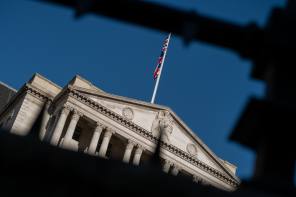

An unexpected shift among the Bank of England’s Monetary Policy Committee towards increasing interest rates is driving the pound higher and at the same time kicking the FTSE 100 lower.
Three members of the MPC voted for an increase in interest rates to 0.5 per cent today (15 June), compared to just one in the prior two months, while five voted for no change.
That was the highest count in favour of tighter monetary policy since May 2011, although the MPC voted unanimously to leave its £445bn quantitative easing scheme to buy government and corporate bonds unchanged.
Although Kristin Forbes voted for a hike, she is leaving the MPC but the shift to a more hawkish stance from Ian McCafferty and Michael Saunders is a new development.
Mr McCafferty voted for interest rate increases six times in row in late 2015 and early 2016.
Russ Mould, investment director at AJ Bell, said the MPC seems to be responding to the increase in UK inflation to four and five-year highs, as measured by the consumer price and retail price indices, even if some of the key causes of that spike – a higher oil price and a weaker pound – are now unwinding.
Mr Mould said: “The prospect of higher returns on cash is giving sterling a lift against the dollar (to nearly $1.2750) and euro (€1.1390), especially as markets had previously thought the Bank of England would only look to increase interest rates from their record-low levels after Brexit in 2019.
“This is hitting the ‘pound-down-FTSE-100-up’ trade which has dominated UK equities since the summer 2016 European Union referendum.
“Miners in particular are falling hard, as their earnings are dollar denominated, although the more domestically oriented FTSE 250 is falling faster still, with stocks exposed to discretionary consumer spending doing the worst, including Restaurant Group, Howden Joinery and Next. House builders are also being hit hard.”
David Lamb, head of dealing at Fexco Corportate Payments, said it was almost as if the hawks in the MPC had staged a coup.
Mr Lamb said: “No-one had expected such a tectonic shift in the committee’s view on interest rates, and the surprise hit the markets like an electric shock.
“While a rate rise could still be a few months away, inflationary pressure is steadily eroding the doves’ grip on the Bank of England’s rate-setting committee.
“While the pound began the day on the back foot after the Fed’s decision to raise US interest rates, such a clear signal that Britain’s era of record-low rates could soon end has helped sterling recover its lost ground.
“The Bank of England’s tolerance of high inflation was always going to be finite – but with consumer prices now rising at 2.9 per cent a year, its tipping point is clearly close at hand.
“Sterling’s knee-jerk rally cannot be dismissed as merely down to surprise. The markets are facing up to the fact that a rate rise is not just a real prospect, but one that is approaching fast.
“While the rally won’t be enough to shake sterling out of its post-election fug, this shift at the MPC could at least stop it falling further in the medium-term.”
emma.hughes@ft.com



